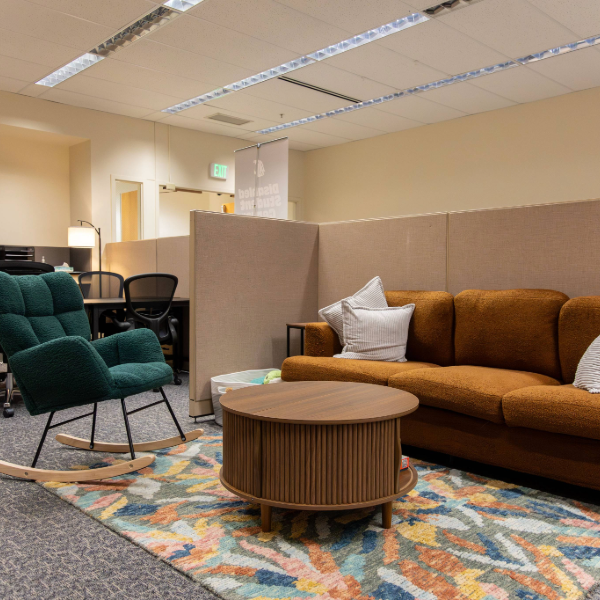Disabled Student Center
The Disabled Student Center (DSC) is a welcoming space for all WSU students, staff, and faculty to engage in conversations around disability. We foster community, pride, and connection among students with disabilities through educational programming, referrals to campus resources, and social events.
We serve as a resource to raise awareness and encourage collaborative problem-solving on issues affecting the disability community. This space is created by and for Cougs, and is grounded in advocacy, education, and empowerment to help build a more inclusive and accessible WSU.
All are welcome at the DSC.
DSC Core Values & Philosophy:
We welcome everyone. The DSC promotes allyship and fosters a deeper sense of community among all members of the WSU campus.
The DSC supports student growth in three key areas that together cultivate a strong sense of belonging:
- Social Engagement – Building a strong, supportive community is at the heart of what we do. Join us for social events, peer support groups, and recreational activities where you can connect with fellow students, make new friends, and create lasting memories.
- Academic Support – Navigating higher education while living with disabilities can be challenging. Our goal is to provide tools and resources to achieve your academic goals. We connect you with campus resources tailored to your needs and offer workshops throughout the year to help you build essential skills for academic success.
- Life Skills Development – We host programming designed to equip you with essential life skills. From time management and coping skills to self-advocacy and anxiety management, we’re here to help you navigate university life with confidence.
Monday - Friday | 9:00 a.m. - 5:00 p.m.
Location: Terrell Library Basement - East Level, Room B20
Our History:
The Disabled Student Center (DSC) was established in 2023 in response to student requests for a dedicated space to explore the disability experience and connect with fellow Cougs. Since opening, the DSC has been thoughtfully supported by the WSU Student Accommodations and Disability Resources.
Our Space:
We connect students with community resources, raise awareness, and advocate for accessibility for all Cougs. The DSC is intentionally designed with accessibility and comfort in mind, offering a variety of tools to help students feel at ease and supported.
Accessibility and Comfort Features:
- Weighted blankets and plushies
- Adjustable lighting options
- Rocking chairs, Criss Cross Chairs, and high-weight-capacity seating
- Bean Bag chair
- Throw blankets
- Fidget toys
- Rentable Headphones
- Coloring books, puzzles, and board games
- Coffee bar with snacks, including sugar-free and decaf options

Terminology:
Why are we called the “Disabled Student Center”? The short answer: WSU students chose the name.
We recognize that not everyone prefers identity-first language, and we want to acknowledge the diversity of perspectives within the disability community. Person-first vs. identity-first language is a widely discussed topic, and there’s no universally accepted approach. The name “Disabled Student Center” was selected by WSU students from a list of options, reflecting the voices of those we serve.
Generally, person-first language is recommended when referring to individuals with disabilities—for example, “person with Down syndrome,” “person with autism,” or “person who uses a wheelchair.” This approach stems from a history of harmful and stigmatizing language, and aims to emphasize the person rather than the disability. However, many individuals within the disability community feel empowered by identity-first language and have reclaimed terms that reflect pride and solidarity. This is especially true in communities such as Autistic and Deaf individuals. Because of the nuanced nature of this conversation, the DSC uses both person-first and identity-first language, depending on context and community preference. Our goal is to be respectful, inclusive, and responsive to the identities of those we serve.
Guidance from AHEAD: https://www.ahead.org/professional-resources/accommodations/statement-on-language
Guidance from Western Washington University: https://disability.wwu.edu/resources/disability-and-language